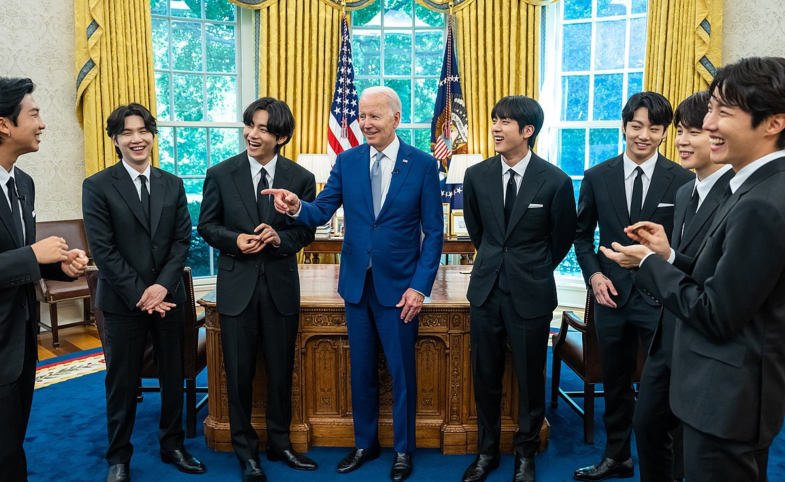This article is the second in a three-part series by Zenia Duell on the fourth World Conference on Creative Economy (WCCE), held in Tashkent, Uzbekistan. The first part explored international conferences as a tool for...
KEEP READINGThe CPD Blog is intended to stimulate dialog among scholars and practitioners from around the world in the public diplomacy sphere. The opinions represented here are the authors' own and do not necessarily reflect CPD's views. For blogger guidelines, click here.

Backlash to the 'Korean Wave'
"Hallyu," or the Korean Wave, is a mainstay of South Korea's soft power and public diplomacy, but its rapid rise and spread since the mid-2000s has created backlash from other countries in the region. In Japan, a movement called ‘Kenkanryu’ (嫌韓流, Hating the Korean Wave) emerged, expressing strong anti-Korean and anti-Hallyu sentiments, fueled by concerns about the dominance of Korean culture and its impact on Japanese identity. A similar movement arose in China, fearing that the Korean Wave could undermine Chinese culture and industry. Taiwan also experienced a surge in anti-Hallyu sentiment, particularly after a series of sports events where South Korea emerged victorious. These anti-Hallyu movements highlight the complex interplay of cultural, political, and economic factors that can shape public opinion and influence international relations.
In the 2010s, the anti-Hallyu sentiment, especially in China and Japan, continued to grow and began to emerge in other Asian countries. China’s decision to ban Korean cultural content in 2017, in response to South Korea’s deployment of the THAAD missile system, significantly impacted the Hallyu Wave. This move, along with other political tensions, led to a sharp decline in positive perceptions of South Korea in China. Japan has also demonstrated resistance toward Korean cultural products. In South Asia, countries like India and Pakistan have also seen a rise in anti-Hallyu sentiment, often linked to concerns about cultural imperialism and the impact of K-pop on local culture. These challenges highlight the complex and sometimes contentious nature of cultural exchange.
"Hallyu," or the Korean Wave, is a mainstay of South Korea's soft power and public diplomacy, but its rapid rise and spread since the mid-2000s has created backlash from other countries in the region.
In Southeast Asia, particularly Thailand, the Philippines, and Vietnam, there have been increasing concerns about the impact of Hallyu on local culture, with some people viewing it as a threat to traditional values and a form of cultural dominance. Recent incidents, such as the controversy surrounding the Korean girl group BLACKPINK member Lisa’s appearance on a Korean reality show, have further fueled anti-Hallyu sentiment in certain regions. Critics argue that it was not appropriate for her to be part of the Korean military experience program as a Thai person, calling it an issue of cultural appropriation.
Some go so far as to denounce K-pop as cultural imperialism, especially in regions with a history of colonialism. The Philippines has imposed the #CancelKorea hashtag on social media in response to racist remarks made by Korean netizens. The controversy began when Filipino-Americans danced with the rising sun flag on TikTok, prompting derogatory comments from some Korean netizens. Senator Jinggoy Estrada suggested banning Korean dramas and foreign-made films to support Filipino-made shows, fearing they could overshadow Filipino artists and lead to job loss. In Vietnam, meanwhile, some regard the presence of K-pop as a dangerous disruptor to the power dynamics between Korea and Vietnam, with the giver seen as a fiercely penetrating influence, and the receiver seen as a proactively passive actor.
In Bangladesh and India, the "BTS Army" has faced attacks and harassment, stemming from homophobia and racism. A BTS fan in Bangladesh experienced harassment, stalking, and death threats after carrying a backpack with a BTS picture. In February 2024, discrimination against Indians in Korea sparked outrage, underscoring the issue of "lookism" and racial profiling. The negative perception of Indians in Korea stems from lack of cultural understanding and historical ties between the two countries.
The global success of Hallyu was possible due to individual artists, producers, and cultural actors in the private sector. Hallyu is not the creation of the public sector. Although the South Korean government paved a road to efficiently promote Korean cultural products abroad, seemingly government-driven cultural industry, the reality in domestic cultural industry has many obstacles, rules, and regulations that could hinder the creativity of cultural actors.
I argue the popularity of Hallyu is mainly attributable to individual artists’ success and their works. If considering the role of government, it is the outcome of the collaborative public-private partnerships efforts, so I want to distinguish between the supporting role of government and the government’s freeriding or upper hand over the private sector actors’ success.
However, as seen in recent phenomena, anti-K-pop turns into anti-Korea, including the country and its people. Anti-Korea sentiments have brought about mutual distrust between peoples that can be expanded to conflicts between nations. The basic principles of public diplomacy must be revisited to restore bilateral relations: 1) listening; 2) mutual understanding; 3) two-way communication for relationship building.
The supporting role of the South Korean government must come with the awareness of negative sentiment toward the country, the engagement with foreign publics through cross-cultural communication efforts, and providing opportunities for foreign cultural actors in the Korean cultural industry. This approach will delineate the appropriate behavior of the South Korean government in response to anti-Korea sentiments caused by anti-Hallyu sentiments, not anti-Hallyu itself.
Visit CPD's Online Library
Explore CPD's vast online database featuring the latest books, articles, speeches and information on international organizations dedicated to public diplomacy.
POPULAR ARTICLES
-
January 20
-
December 17
-
December 15
-
January 2
-
January 28
Join the Conversation
Interested in contributing to the CPD Blog? We welcome your posts. Read our guidelines and find out how you can submit blogs and photo essays >.













